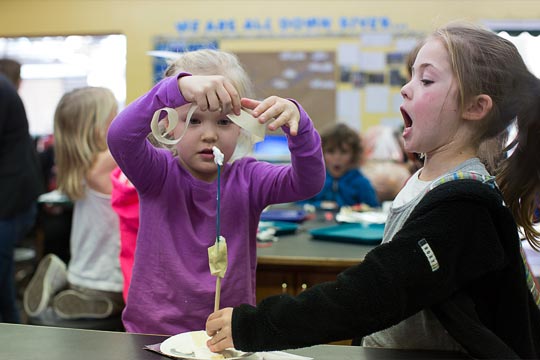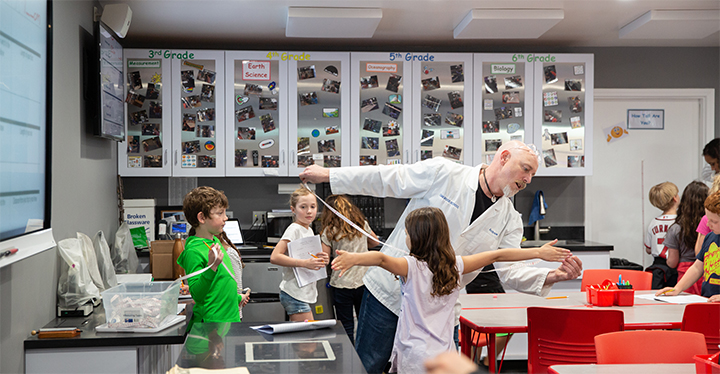Science

The elementary science curriculum promotes children’s natural curiosity about the world around them. In order for students to learn science, they must do science. Units and themes are designed and implemented to help students ask questions and construct meaning as they work to discover answers. Students are encouraged to design, hypothesize, construct, observe, classify, record, and interpret in a full experiential environment. All labs conform to the Next Generation Science Standards utilizing experiential design that encourages a growth mindset. Through this process students enrich their own insights and perceptions about how science impacts today’s modern life.
Physics, Chemistry, Earth, Space, and Life sciences are explored using a hands-on, inquiry based approach both in and out of the classroom as well as in the Science Lab. Our science lab teacher works closely in conjunction with our classroom teachers to provide a robust science experience for our students. Students immerse themselves in a variety of exciting science projects at the elementary campus such as building a school garden, hatching chicks, creating a podcast, investigating a “crime,” and field trips to enrich the study of astronomy, oceanography, etc.
Science Technology Center

In the Science Technology Center (STC) a laboratory environment provides K-6 students an opportunity to participate in exploration and scientific investigation.
Integrating science and technology, third grade meteorologists study current weather trends and conditions and collect information from our onsite weather station. Internet data is also reviewed, analyzed, and utilized by students who then videotape their weather predictions for a weekly Internet broadcast.
While fourth graders discover the structure of matter as they experiment with solutions that create newly formed chemical compounds, fifth graders construct indirect siphons to demonstrate the nature of fluid air pressure in their study of physics.